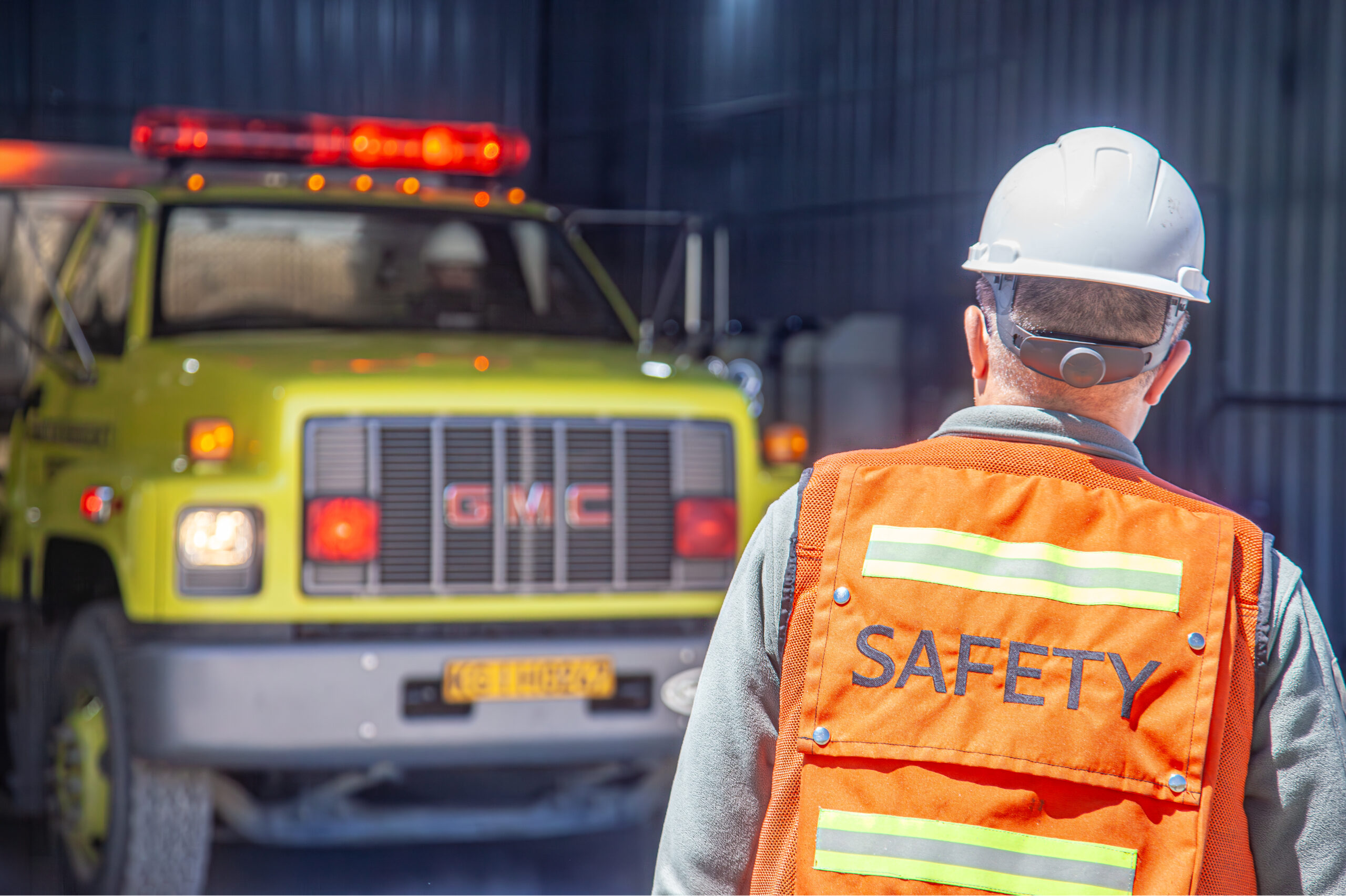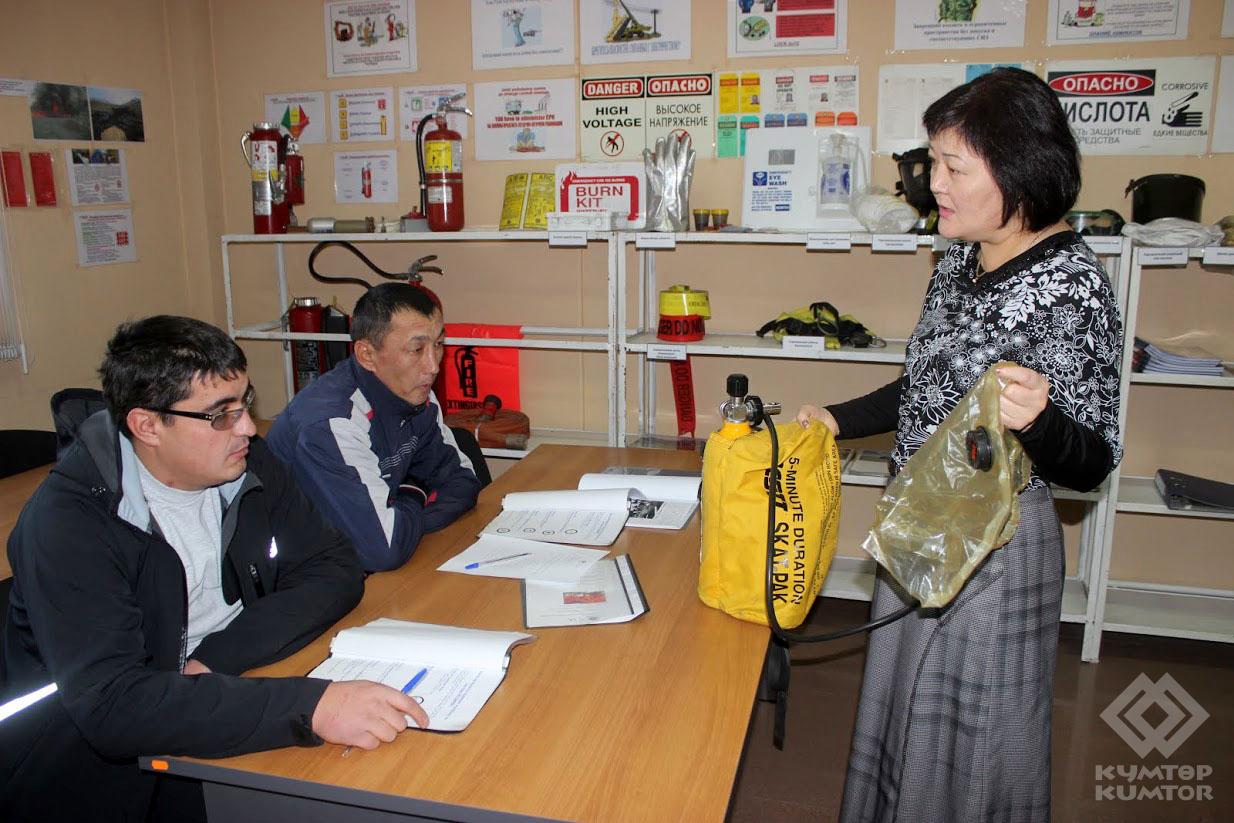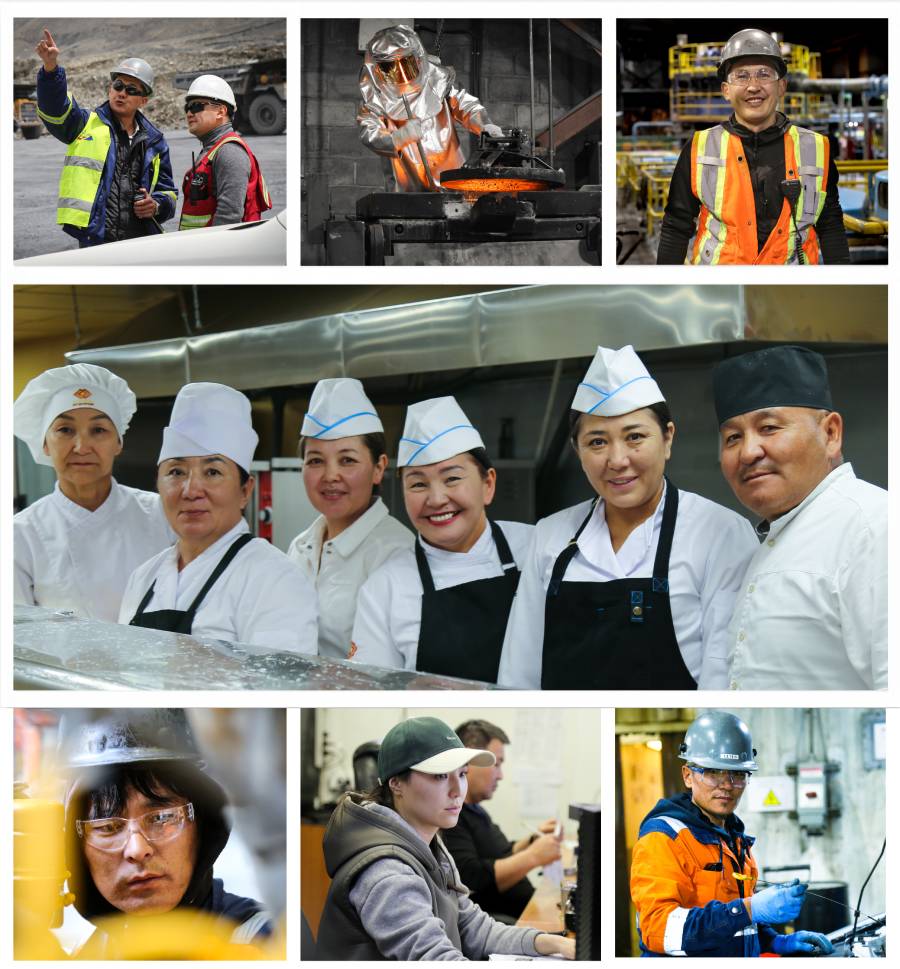Health & Safety
Our motto is:
«No job is so important we cannot take time to do it safely»
When mining at the high altitude of 4,000 metres, the major challenges are living and working with the cold climate and reduced oxygen levels. Average annual temperature is minus 8°C with a minimum as low as minus 50°C.
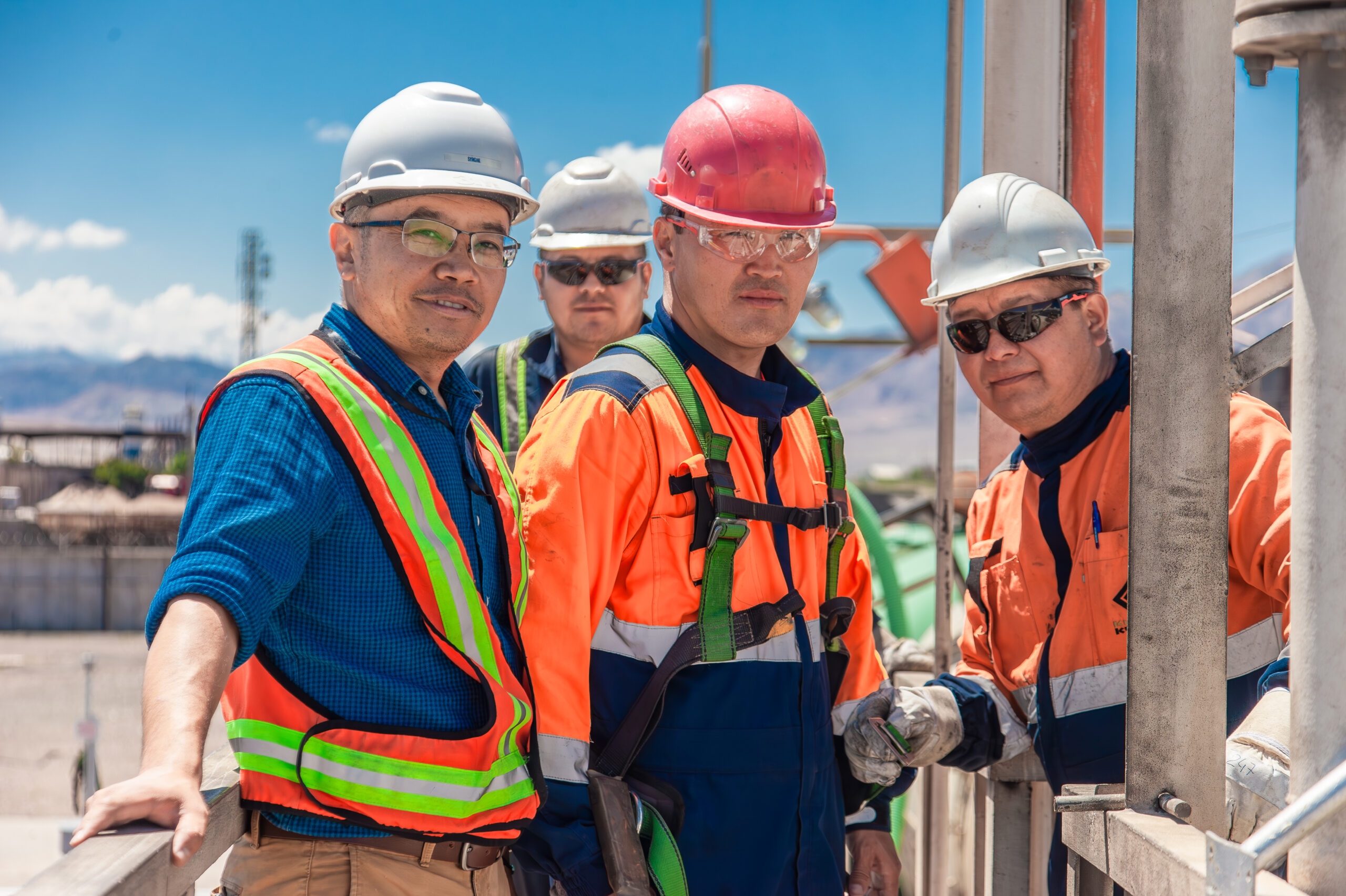
Our employees receive regular health checks and support, are provided with high quality safety clothing, and receive health and safety training to protect themselves and co-workers. We record and analyse incidents and near misses, conduct preventive measures in the field of labour protection. We have an emergency rescue team, which is equipped and equipped with all necessary equipment and regularly conducts drills. We also have a volunteer emergency rescue team made up of regular employees. Our motto is “no job is so important we cannot take time to do it safely.”
We are committed to promoting a safe, healthy and rewarding work environment. We take proactive measures to avoid injuries, which include leading indicators, pre-task planning, workplace inspections, etc. As part of continuous improvement, we have been implementing a programme to improve our safe work culture since 2016. To avoid recurrences, we investigate all incidents and accidents to identify causes and take action. We work on an inventory of critical risk controls.
Health and safety training
All new mine employees receive first aid training, and regular refresher training. Emergency service trainings include safety induction, first aid training, firefighting, emergency and workplace hazards, transporting dangerous goods, safe driving, etc. In addition, such issues as admission to work, radiation exposure hazards, effects of pressure on blood vessels and ultraviolet radiation on the body, frostbite and hypothermia, hearing protection, working in confined spaces, handling cyanide and other chemicals were addressed.
Medical screening and wellness
Our employees receive regular health checks, in particular with respect to ensuring they are fit to travel to, and work at, the high-altitude, reduced oxygen conditions at the mine site. In accordance with a license issued by the Ministry of Health, Kumtor maintains medical facilities and staff in Bishkek, at the Balykchy Marshalling Yard, and at the mine site, with trained staff including doctors, paramedics, nurses and first aid instructors. All new employees and contractors receive a full medical before first visiting the mine site. Employees are then checked annually thereafter, and contractors every 3-6 months. Drivers receive a blood pressure and oxygen test before each journey to/from site, and at every shift for Bishkek-based drivers. In addition, all employees and contractors receive appropriate checks and treatment in the event of any illness or symptoms of concern.
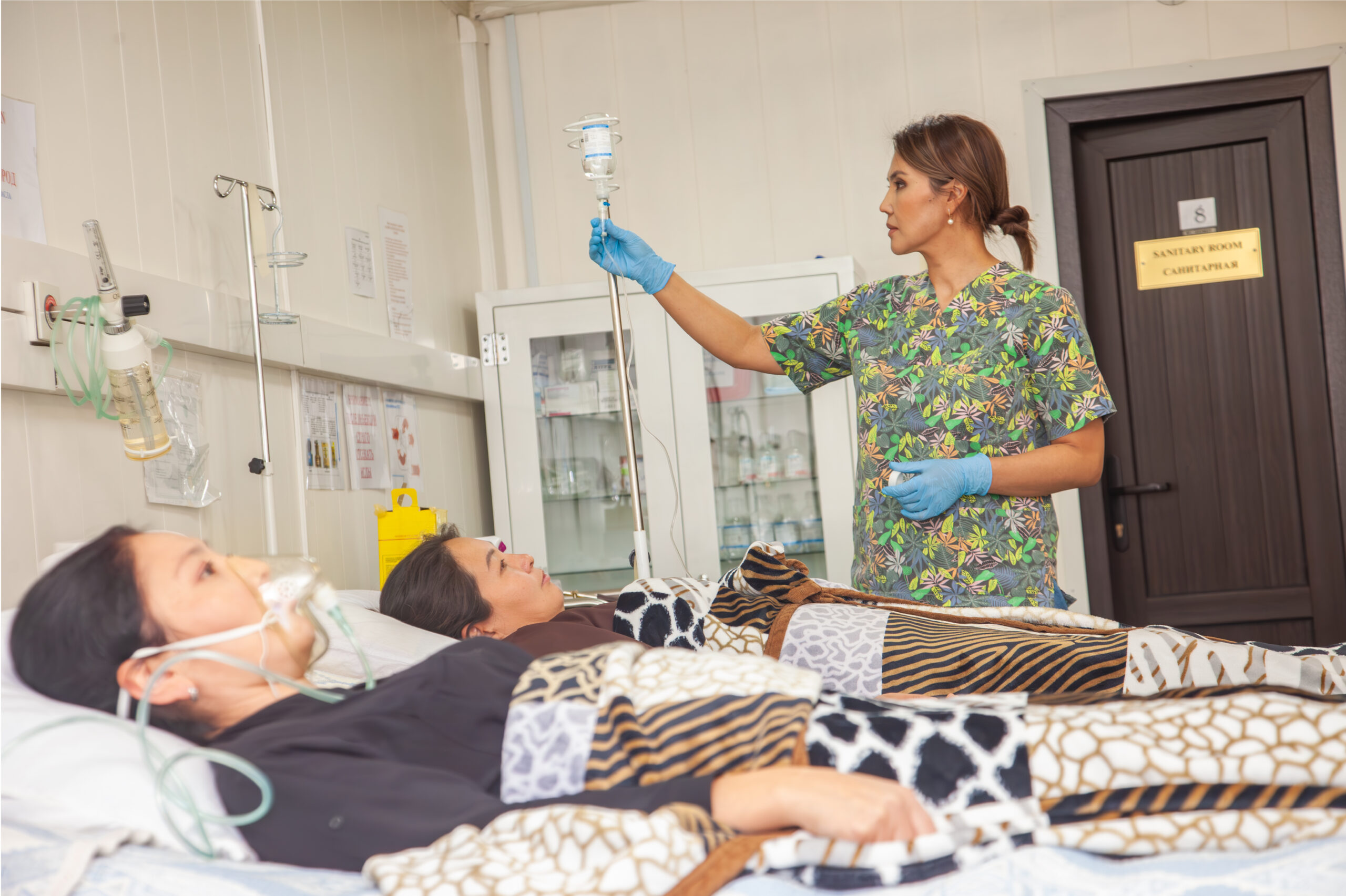
A barometric chamber is available on site to help with more gradual acclimatization if needed. We have proactive programs to protect our employees and improve their general health and wellbeing. We conduct an annual influenza immunisation program. Our monitoring shows that upper respiratory tract infections remain the principal cause of work absence. We have been running a smoking cessation program since 2002, consisting of a number of parallel initiatives including individual counselling, medication (such as nicotine patches), and limiting locations where smoking is permitted. This latter action is particularly important for reducing the risks of passive smoking. We have been conducting a nutrition-monitoring program, which includes individual counselling of employees and reviewing the nutritional balance of food, provided at the mine camp. For every meal, a wide choice of high quality, freshly prepared food is available, providing for personal and cultural preferences, and 100 percent sourced from the Kyrgyz Republic.
Emergency prevention and response
Our emergency rescue service is on standby 24 hours a day. The service is staffed by professional rescuers under the direction of the emergency rescue service commander. We review and update our emergency plans annually and conduct regular training and drills.
Mock drills and annual competitions involving teams from the Ministry of Emergency Situations, Kyrgyzaltyn contribute to improving the skills and gaining experience of our rapid response team. We conduct training in accordance with the requirements of authorised state bodies. In case of serious incidents, we analyse them and draw conclusions, revise and improve our emergency response actions accordingly. The cyanide incident is a good example of our team’s rapid response, as described below.
